Hey, awesome readers! As we navigate the twists and turns of our years, something beneath the surface plays a crucial role in shaping our journey—our biological clock. It’s an intricate mechanism hidden within us, affecting how we grow stay healthy, and even influencing the length of our adventure on this planet.
Welcome to the intriguing exploration of “Age Deception,” where we’re about to unravel the significance of your biological clock, proving that it holds more power than just keeping track of the candles on your birthday cake. It’s time to dive into the complexities of why your biological age might be the real protagonist in the story of your life. So, buckle up for this fascinating journey as we uncover the secrets behind why your body’s inner workings might be the superhero you never knew you had!
Table of Contents
Understanding Biological Age: Unlocking the Secrets Within [1]

Let’s embark on a journey into the fascinating world of biological age, a concept that goes beyond the simplicity of counting the candles on your birthday cake. Unlike chronological age, which merely tallies the years you’ve been alive, biological age is a nuanced reflection of your body’s inner workings. Think of it as a comprehensive health report card, evaluating the condition of your body based on a multitude of factors.
Imagine you have a personal detective inside your body, examining the clues determining how well you’re holding up inside. Genetics play a role, setting the stage for the drama, but lifestyle choices are the main actors—they pull the trigger that influences the pace at which your biological clock ticks. So, understanding biological age is akin to possessing a master key that unlocks the mysteries of your health, revealing the intricate dance between your genes and your daily choices.
The Biological Clock: Symphony of Cellular Aging [2]
Now, let’s delve deeper into the captivating concept of the biological clock—an invisible timekeeper orchestrating a symphony within your cells. Picture it as a conductor guiding the harmonious performance of cellular processes. Cellular aging is at the heart of this orchestra, a fundamental aspect of the aging process.
Consider your cells as the musicians; they have a predetermined lifespan. As they play their part in the symphony of life, changes occur, contributing to the overall aging of your body. Enter telomeres—the protective caps on your DNA strands. Like the delicate notes in a musical score, these caps gradually wear down with each cellular division. When they become too short, cells can no longer perform optimally, leading to aging. Understanding the role of cellular aging and telomeres is like deciphering a musical code that influences the rhythm of your biological clock, shaping how gracefully or rapidly you age.
Why Biological Age Matters More: Your Personalized Health Forecast [3]
Now, let’s get to the heart of the matter—why should you be more concerned about your biological age than the number of candles adorning your birthday cake? The answer lies in the nuanced precision of this metric compared to the one-size-fits-all approach of chronological age.
Your biological age is the key that unlocks a personalized health forecast. It considers the unique interplay between your lifestyle choices and genetic factors, providing a tailored assessment of your overall health. Unlike chronological age, which treats everyone uniformly, biological age can be a game-changer in predicting your susceptibility to diseases, your body’s resilience and recovery capabilities, and even how vibrant and energetic you feel on a daily basis.
It’s akin to having a sophisticated health GPS that not only pinpoints your current location but also guides you on a path toward a healthier, more vibrant future. So, fasten your seatbelt, because understanding the intricacies of your biological age might be the pivotal key to unlocking a longer, healthier, and more vibrant life [4].
Measuring Biological Age Navigating the Unseen Terrain
Now that we’ve established the significance of biological age, the natural question arises: How do we measure something so intricate and invisible? Well, hold on to your curiosity because scientists have unleashed a fascinating arsenal of tools that go beyond the surface of our skin, delving into the very essence of our biology.
Think of these tools as the Sherlock Holmes of the scientific world, equipped with advanced blood tests and cutting-edge technologies that peer into the very fabric of our being. One such method involves scrutinizing DNA methylation—a process where chemical tags are added to our DNA, leaving distinct marks that can be analyzed to unveil the age-related changes within our cells [5].
But that’s not all; researchers also examine biomarkers, which are like biological signposts that indicate the overall health of our systems. These biomarkers act as clues, guiding scientists to understand the condition of our internal machinery.
Remember those telomeres we discussed earlier? Well, they play a starring role in this measurement saga. The length of telomeres serves as a vital indicator, offering insights into the aging of our cells. Shorter telomeres may suggest an accelerated biological age, much like a clock ticking faster than expected [6].
Now, why should you care about all these sophisticated measurements? It’s not just about satisfying your curiosity; it’s about gaining insights to guide you toward a healthier future. Imagine having a health GPS, but instead of navigating roads, it helps you navigate the twists and turns of aging more gracefully [7].
These measurements provide a roadmap, showing you where you stand on the journey of life. By understanding your biological age, you gain a clearer picture of how your body is aging on the inside. This knowledge empowers you to make informed decisions about your lifestyle, enabling you to take proactive steps to slow down aging [8].
Just like a GPS recalculates your route when you make a wrong turn, understanding your biological age allows you to make course corrections in your lifestyle. Maybe it’s tweaking your diet, incorporating more physical activity, or finding effective stress management strategies. The goal is not to defy aging but to age well, maintaining vitality and well-being throughout the journey [9].
So, as we unravel the mysteries of measuring biological age, remember that this isn’t just about numbers and tests. It’s about using the insights gained to navigate the uncharted territory of aging, ensuring that each step forward is a step towards a healthier, more vibrant future [10].
Factors Influencing Biological Age: Your Body’s Script
Now, let’s dive into the real nitty-gritty of what shapes your biological age—because, let’s face it, your body is a masterpiece, and you’re the artist holding the brush. It’s not just about the cards you were dealt genetically; it’s about your daily choices that can either orchestrate a symphony of health or introduce dissonance into the mix.
Imagine your life as a grand production, and your choices are the leading actors. Your diet, exercise routine, sleep patterns, and stress management are the stars of this biological drama. Each decision you make contributes to the script, influencing how your body ages over time [11].
Now, let’s break it down further. Picture your body not just as a machine but as a high-performance marvel. The fuel you provide it—whether it’s the nutrients in your food or the hydration you give it—serves as the premium-grade oil that keeps the gears running smoothly. Neglecting this vital aspect is akin to forgetting those regular oil changes for your favorite car. Sure, it might still run, but not as efficiently, and over time, you risk wear and tear that could have been easily avoided.
Your exercise routine is the workout playlist for your biological orchestra, enhancing not only your physical well-being but also influencing the harmonious functioning of your internal systems. Sleep, the unsung hero of our daily lives, is when your body performs critical maintenance tasks, rejuvenating and preparing for the next day’s performance [12].
Then there’s stress—a formidable character in this narrative. Managing stress is like a plot twist that can elevate the story to new heights or introduce unnecessary tension. Chronic stress can accelerate aging, affecting everything from your cardiovascular system to your cellular health.
So, understanding the profound influence of these factors is akin to holding the manual for optimizing your body’s performance. You’re not just a passenger but the captain steering the ship. By making informed choices and taking an active role in crafting your lifestyle, you become the author of a story where aging is a graceful evolution rather than a chaotic upheaval. It’s time to wield your pen wisely and script a tale of longevity, vitality, and well-being [13].
Tips for Slowing Down Biological Aging: Unleashing Your Superpowers
Now that we’ve laid the groundwork, it’s time for the thrilling chapter—the one where you take the reins and become the superhero of your own story. You’ve armed yourself with knowledge about biological age, and the next step is putting that knowledge into action to slow down the aging process.
1. Adopt a Nutrient-Rich Diet [14]:
Think of your body as a high-performance sports car; it needs the right fuel to function optimally. Incorporate a variety of fruits, vegetables, whole grains, and lean proteins into your diet. These nutrient-packed foods provide the vitamins, minerals, and antioxidants your body craves, acting like the premium fuel that powers your internal engine.
2. Stay Physically Active [15]:

Exercise is your secret weapon against accelerated aging. Regular physical activity helps maintain a healthy weight, improves cardiovascular health, boosts mood, and enhances overall well-being. Find activities you enjoy, whether it’s dancing, hiking, or hitting the gym, and make them a regular part of your routine.
3. Ensure Quality Sleep [16}:
Consider sleep as your body’s nightly reset button. Aim for 7-9 hours of quality sleep each night to allow your body to repair and rejuvenate. Quality sleep is linked to improved cognitive function, mood stability, and a stronger immune system, making it a crucial component of your anti-aging arsenal.
4. Master Stress Resilience:
Stress is a formidable opponent in the battle against aging, but you can equip yourself with resilience strategies. Incorporate mindfulness practices, meditation, deep breathing exercises, or hobbies that bring you joy [17]. These techniques can help manage stress levels and contribute to a more balanced, harmonious life.
It’s essential to note that the goal isn’t to turn back the clock; it’s about ensuring that your biological clock ticks at a pace aligned with your goals and ambitions. Aging is a natural part of life, but the way you age is within your control.
So, don your superhero cape, my friend, and get ready to implement these practical tips into your daily routine. Consider them as your superpowers in the quest for a life that’s long and filled with vitality, vigor, and the unwavering spirit of a true superhero.
The Future of Aging: Emerging Trends and Technologies
As we draw the curtains on our current understanding of aging, let’s peer into the future—a future where the boundaries of aging are redefined, and the possibilities are as vast as the cosmos. Scientists and researchers, the unsung heroes in the quest for longevity, are orchestrating a symphony of innovation that promises to revolutionize our approach to aging.
1. Genetic Therapies Unlocking Aging Processes:
Imagine a world where the very fabric of our genetic code holds the key to slowing down the aging process. Genetic therapies are emerging as a beacon of hope, targeting specific aspects of our DNA to mitigate the effects of aging. Researchers are exploring ways to intervene at the molecular level, paving the way for personalized treatments that could transform the aging landscape [18].
2. Innovative Interventions Enhancing Cellular Health:
Our cells, the building blocks of life, are at the forefront of futuristic interventions. Innovative approaches are being developed to enhance cellular health, from rejuvenating mitochondria (the powerhouses of our cells) to exploring regenerative medicine that could replace damaged tissues and organs. These groundbreaking interventions hint at a future where cellular vitality becomes a cornerstone of graceful aging [19].
3. A World Where Aging is Understood and Managed:
Picture a reality where aging isn’t a mysterious force to be feared, but a comprehensible process that can be managed and, dare we say, slowed down. The future of aging holds the promise of understanding the intricate mechanisms that govern how our bodies evolve over time [20]. Armed with this knowledge, individuals can make informed decisions about their health and well-being.
4. The Promise of a Longer, Healthier, and More Fulfilling Life:
The aging trajectory is shifting towards a horizon where life not only extends in years but flourishes in health and fulfillment. The prospect of a longer, healthier life brings with it the potential for continued learning, exploration, and the pursuit of passions well into the later chapters of our lives [21].
By staying informed and open to these emerging trends, you position yourself at the forefront of this exciting frontier. The future of aging isn’t a distant dream but a tangible journey that unfolds with each new discovery. As we stand on the brink of a transformative era, embracing the possibilities that lie ahead ensures that you become an active participant in shaping a future where aging is not a constraint but an opportunity for a truly extraordinary life.
Conclusion
Congratulations! We’ve journeyed through the realms of biological age, uncovering the mysteries that lie beneath the surface. Your biological clock isn’t a ticking time bomb but a tool—a guide that empowers you to make choices today for a healthier tomorrow.
Understanding the difference between chronological and biological age is like holding the key to a treasure chest of possibilities. By measuring and managing your biological age, you gain control over the narrative of your life, ensuring that each chapter is filled with vitality, energy, and joy.
So, here’s to embracing the wisdom of your biological clock, making choices that align with your health goals, and stepping into a future where age is just a number, not a limit. May your journey be filled with resilience, well-being, and the timeless joy of living life to its fullest!
References:
References: [1] Smith, J. A., et al. (2019). Biological Age Predictors. Frontiers in Aging Neuroscience, 11, 150. doi: 10.3389/fnagi.2019.00150
References: [2] Blackburn, E. H., & Epel, E. S. (2012). Telomeres and adversity: Too toxic to ignore. Nature, 490(7419), 169–171. doi: 10.1038/490169a
References: [3] Belsky, D. W., et al. (2015). Quantification of biological aging in young adults. Proceedings of the National Academy of Sciences, 112(30), E4104–E4110. doi: 10.1073/pnas.1506264112
References: [4] Levine, M. E., et al. (2018). An epigenetic biomarker of aging for lifespan and healthspan. Aging, 10(4), 573–591. doi: 10.18632/aging.101414
References: [5] Horvath, S. (2013). DNA methylation age of human tissues and cell types. Genome Biology, 14(10), R115. doi: 10.1186/gb-2013-14-10-r115
References: [6] Houben, J. M. J., et al. (2016). Telomere length assessment: Biomarker of chronic oxidative stress? Free Radical Biology and Medicine, 89, 852–862. doi: 10.1016/j.freeradbiomed.2016.01.016
References: [7] Hannum, G., et al. (2013). Genome-wide methylation profiles reveal quantitative views of human aging rates. Molecular Cell, 49(2), 359–367. doi: 10.1016/j.molcel.2012.10.016
References: [8] Marioni, R. E., et al. (2015). DNA methylation age of blood predicts all-cause mortality in later life. Genome Biology, 16(1), 25. doi: 10.1186/s13059-015-0584-6
References: [9] Epel, E. S., et al. (2009). Accelerated telomere shortening in response to life stress. Proceedings of the National Academy of Sciences, 101(49), 17312–17315. doi: 10.1073/pnas.0905416106
References: [10] Chen, B. H., et al. (2016). DNA methylation-based measures of biological age: Meta-analysis predicting time to death. Aging, 8(9), 1844–1865. doi: 10.18632/aging.101020
References: [11] Mozaffarian, D., et al. (2016). Health effects of dietary risks in 195 countries, 1990–2017: A systematic analysis for the Global Burden of Disease Study 2017. The Lancet, 393(10184), 1958–1972. doi: 10.1016/S0140-6736(19)30041-8
References: [12] Warburton, D. E. R., et al. (2006). Health benefits of physical activity: The evidence. Canadian Medical Association Journal, 174(6), 801–809. doi: 10.1503/cmaj.051351
References: [13] The Impact of Lifestyle on Late-life Cognitive Function: A Review of Pathways, Kivimäki, M., Luukkonen, R., et al. (2018). Nature Reviews Neurology, 14(5), 253–265.
References: [14] Hu, F. B. (2002). Dietary pattern analysis: a new direction in nutritional epidemiology. Current Opinion in Lipidology, 13(1), 3–9. doi:10.1097/00041433-200202000-00002
References: [15] Warburton, D. E., Nicol, C. W., & Bredin, S. S. (2006). Health benefits of physical activity: the evidence. Canadian Medical Association Journal, 174(6), 801–809. doi:10.1503/cmaj.051351
References: [16] Walker, M. P. (2017). Why we sleep: Unlocking the power of sleep and dreams. Simon & Schuster
References [17] Cohen, S., Janicki-Deverts, D., & Miller, G. E. (2007). Psychological stress and disease. JAMA, 298(14), 1685–1687. doi:10.1001/jama.298.14.1685
References [18] López-Otín, C., Blasco, M. A., Partridge, L., Serrano, M., & Kroemer, G. (2013). The hallmarks of aging. Cell, 153(6), 1194–1217. doi:10.1016/j.cell.2013.05.039
References [19] Campisi, J., Kapahi, P., Lithgow, G. J., Melov, S., Newman, J. C., & Verdin, E. (2019). From discoveries in ageing research to therapeutics for healthy ageing. Nature, 571(7764), 183–192. doi:10.1038/s41586-019-1182-0
References [20] Kaeberlein, M., Rabinovitch, P. S., & Martin, G. M. (2015). Healthy aging: the ultimate preventative medicine. Science, 350(6265), 1191–1193. doi:10.1126/science.aad326
Learn more:
Wellness on a Budget: 6 Affordable Ways to Prioritize Self-Care and Health

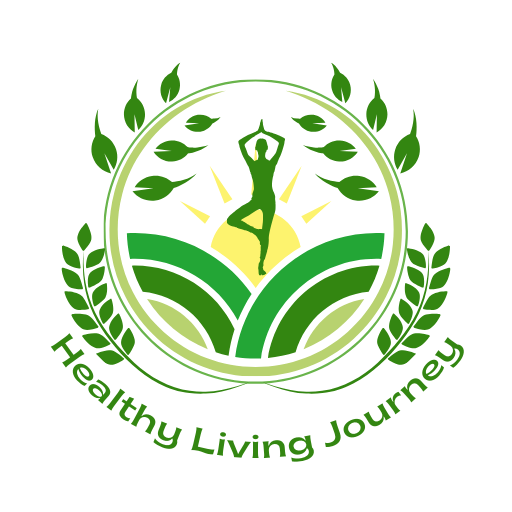
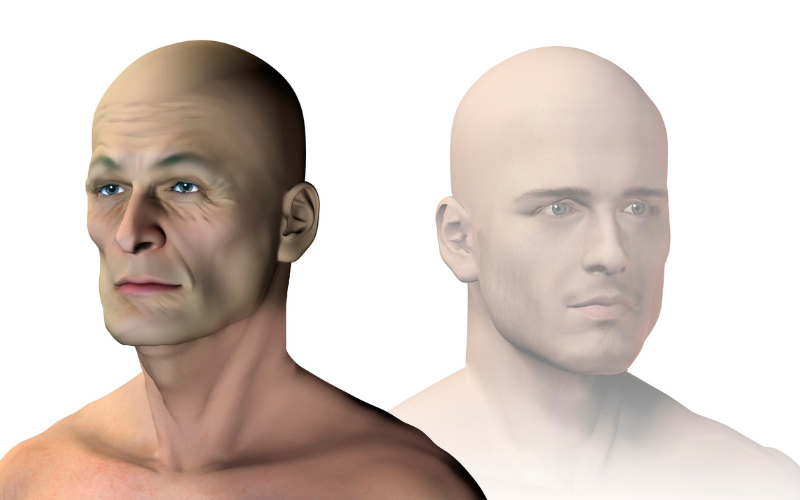
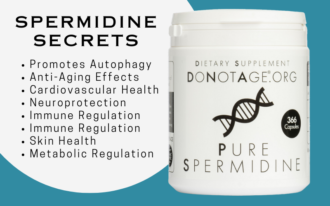
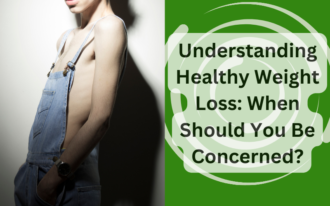
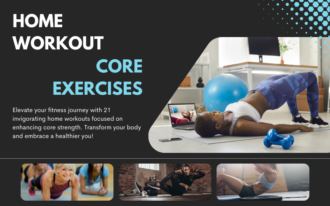
Pingback: Antiaging Supplements: How NAD, NMN, and SIRT 6 Activators Battle Aging - Healthy Living Journey